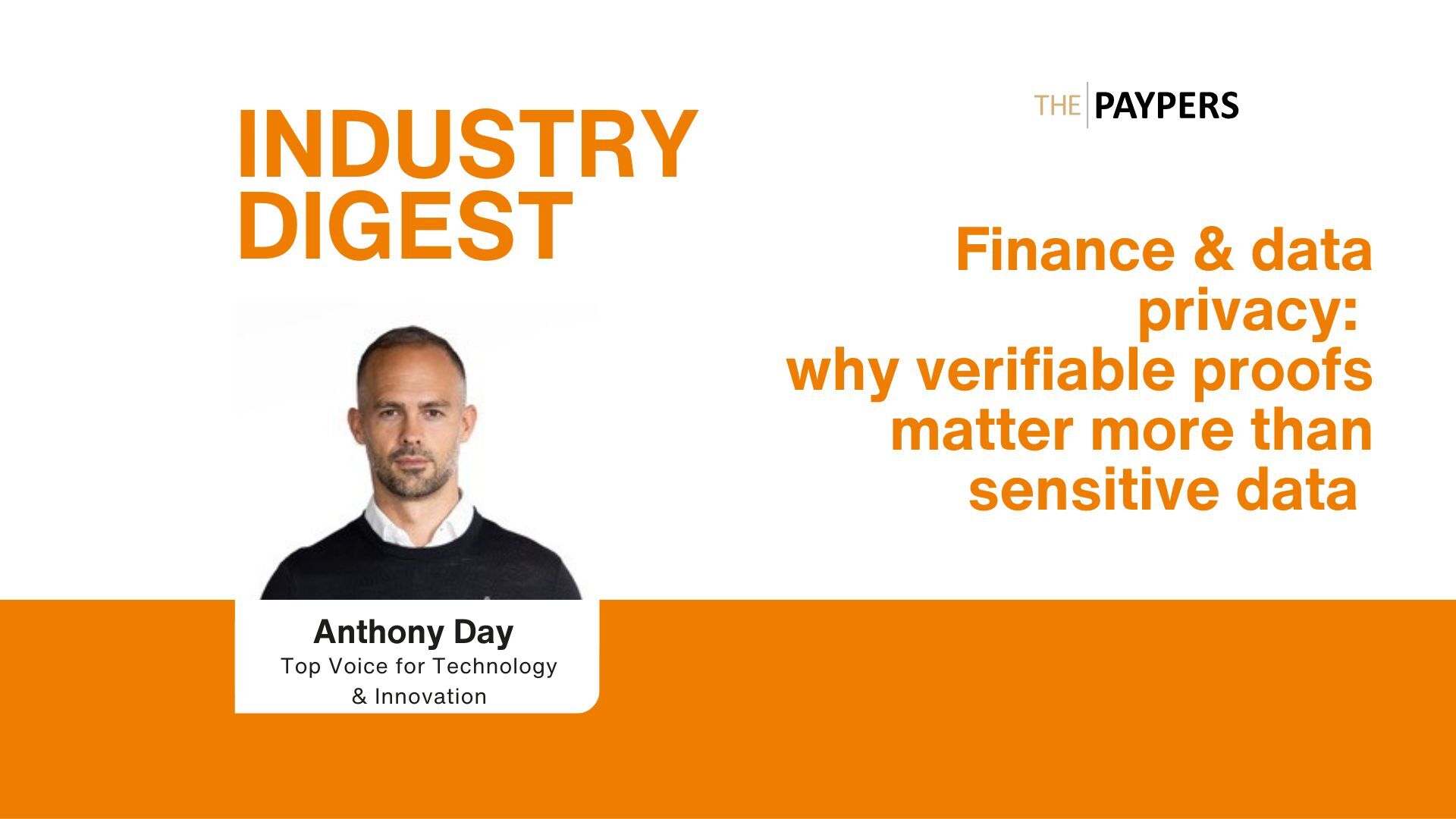Why Verifiable Proofs Outweigh Sensitive Data in Today’s Digital Age

Embracing blockchain: The Future of Financial Services and Data Privacy
As interest in digital currencies surges, conventional financial institutions are increasingly exploring innovative methods for managing finances and information. A pivotal question arises: how can we navigate this evolution while safeguarding data integrity?
To delve into this topic, we engaged with Anthony Day, the Head of Strategy & Marketing at Midnight, a blockchain solution focused on data protection developed by Input Output. He provided valuable insights into how blockchain technology can revolutionize financial services, particularly in terms of data privacy, security, transparency, and operational efficiency.
The Transformative Potential of blockchain in Finance
Anthony’s exploration of blockchain began during his tenure at Deloitte, where he investigated how this technology could redefine business landscapes. He emphasized that blockchain presents a distinctive array of advantages:
- Immutability: Once recorded, data on the blockchain remains unchanged, fostering trust and transparency.
- Unified Truth: All relevant parties can access transaction records while ensuring privacy is maintained.
- Selective Privacy: blockchain facilitates controlled data sharing, allowing only essential information to be disclosed.
- Tokenization: The ability to create digital assets that can be securely transferred internationally in real-time.
These features distinguish blockchain from traditional financial systems, paving the way for a more secure and efficient financial infrastructure.
blockchain‘s Role in Decentralized Finance (DeFi)
The practical applications of blockchain in decentralized finance (DeFi) are particularly noteworthy. Anthony pointed out that DeFi enables various services, including lending, borrowing, and yield-generating instruments, creating fresh opportunities for both individuals and businesses.
He noted that traditional financial institutions are investigating blockchain for its potential to provide a singular source of truth and facilitate international transactions. The tokenization of cash and deposits is currently under trial, enabling multinational corporations to transfer assets effortlessly across banks and jurisdictions, thereby enhancing speed to market and financial responsiveness.
Data Privacy: A Critical Concern in Financial Services
Data privacy remains a significant challenge within the financial sector. Frequently, sensitive information is stored on centralized servers, rendering it susceptible to breaches, phishing, and identity theft. As Anthony succinctly stated, “The more sensitive data is stored online, the greater the risk of fraud. Companies prefer not to retain this data as it poses a liability.”
For years, the exchange of sensitive information for goods and services has been normalized due to the lack of better alternatives. However, advancements in zero-knowledge proofs (ZKPs) and cryptographic technologies are shifting this paradigm.
Transitioning to Verifiable Proofs Over Sensitive Data
Zero-knowledge technology enables verification without disclosing actual data. This allows businesses to confirm identity, financial status, or compliance without revealing sensitive information. Despite its benefits, many financial institutions have been cautious about adopting blockchain due to fears of data exposure. Nevertheless, Anthony remains hopeful: “The challenge for decentralized applications lies in balancing privacy with compliance. Zero-knowledge proofs present a robust solution for the future of financial services.”
Future Outlook: The Path to Zero-Knowledge Adoption
By the end of 2025, we may witness a broader acceptance of selective disclosure and zero-knowledge proofs in the financial sector. Midnight, along with other blockchain initiatives, is striving to make these solutions more user-friendly. However, the complexity of cryptographic methods continues to pose a challenge. “blockchain and zero-knowledge proofs are often perceived as overly complicated. The key for Web 3 is to simplify its technology,” Anthony remarked.
Ultimately, he envisions a future where sharing proofs instead of sensitive data becomes the norm for secure financial transactions. This represents a significant shift toward a more secure and efficient financial architecture, minimizing risk while enhancing trust and operational effectiveness.
For a deeper understanding, be sure to check out our full interview!
Learn More About Anthony Day
Anthony Day is a seasoned growth leader with over 20 years of experience, actively engaging with blockchain and decentralized technologies since 2016. He has held leadership roles in major tech firms like Deloitte, IBM, and Parity Technologies, and is currently focused on advancing Midnight, a data-protection blockchain developed by IOG.
He has been recognized as a Top Voice for Technology & Innovation on LinkedIn for the past two years and hosts the podcasts “blockchain Won’t Save the World” and “RightClickSaveTheWorld.”
For further insights into Anthony’s work, visit:
For those interested in learning more about blockchain and Midnight, explore:







